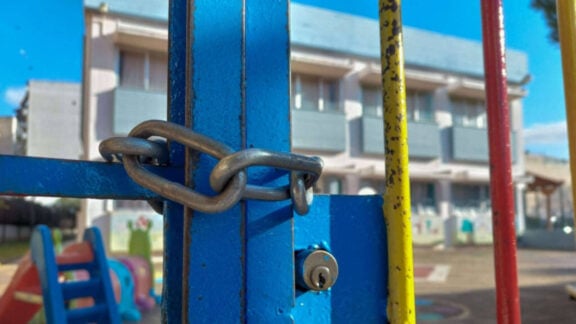Greece and Cyprus are among the majority of EU member nations calling for more partnerships to tackle migration.
The 15 EU members want more agreements with countries where migrants depart from or travel through to get to Europe.
According to Associated Press (AP), the call came in a letter released on Thursday, a day after the EU passed a measure to update its aging asylum laws, although it won’t enter force for two years and will only work if all member nations put all of its provisions into action.
The letter, addressed to the high-ranking officials in the EU’s executive Commission, said that officials in signatory countries believe further solutions are needed.
They believe the migration situation “will require all of us to think outside the box and jointly find new ways to address this issue at EU level.”
Alongside Greece and Cyprus, the letter was signed by the immigration ministers of Estonia, Italy, Latvia, Lithuania, Malta, the Netherlands, Austria, Poland, Romania and Finland.
Bulgaria, the Czech Republic and Denmark took the lead in the group.
Migration is expected to be an important issue as the campaigning for the European-wide elections next month pick up.
In Brussels on Wednesday, the EU endorsed sweeping reforms to the bloc’s failed asylum system.
The New Pact on Migration and Asylum lays out rules for EU members to handle people trying to enter without authorisation, from how to screen them to establish whether they qualify for protection to deporting them if they’re not allowed to stay.
The letter said there needs to be a change of focus “from managing irregular migration in Europe to supporting refugees as well as host communities in regions of origin” while also finding “new ways and solutions to prevent irregular migration to Europe.”
It also pointed to deals that the EU made with Turkey and Tunisia, the deal Italy made with Albania which will see the latter host thousands of migrants picked up at sea and transferred there by the Italian authorities.
The 15 nations believe it is important to have the ability to transfer asylum seekers to “a safe third country alternative” if such an alternative exists, and that any new measures would be in full compliance with “international legal obligations.”
The reform will aim to resolve issues that have divided the EU since well over one million migrants entered Europe in 2015, mostly fleeing from war in Syria and Iraq.
But there will be no immediate fix to the issue, with the reform entering force in 2026, while many have criticised the pact saying it’s aimed at keeping people out and infringes on their right to claim asylum.







